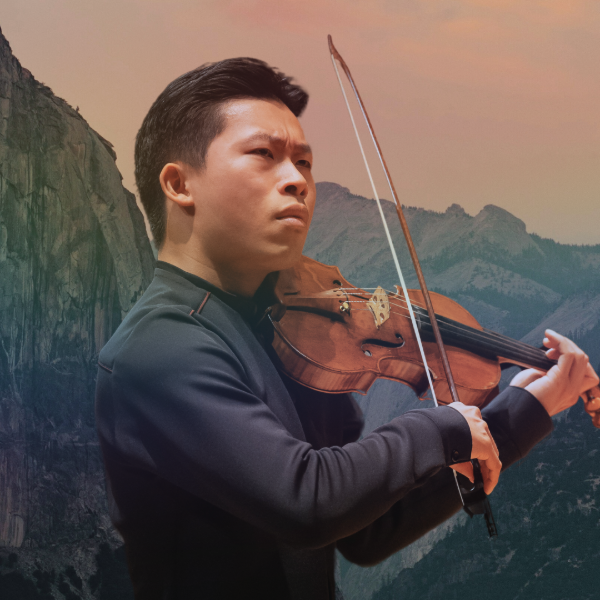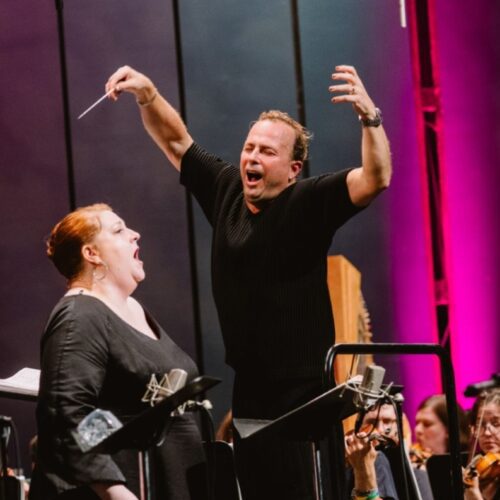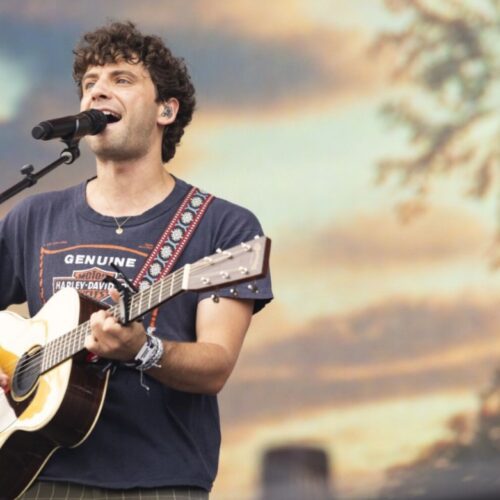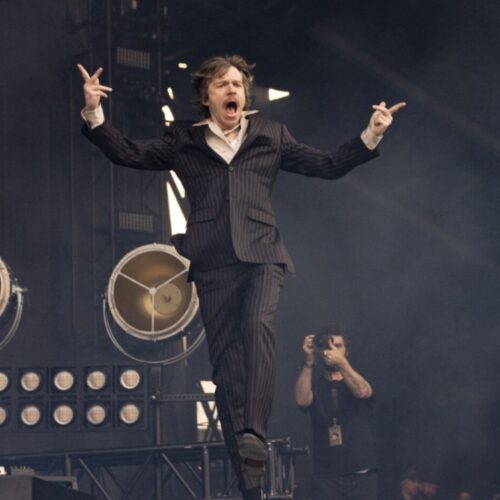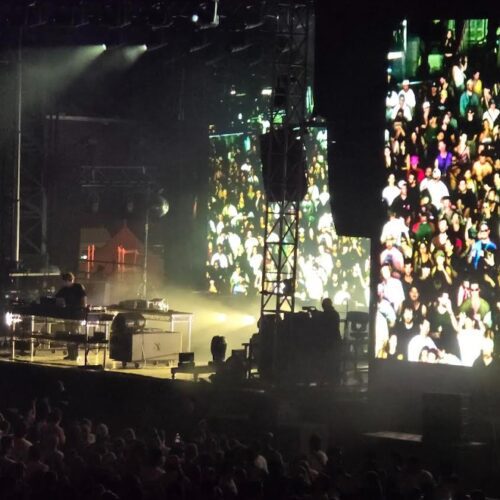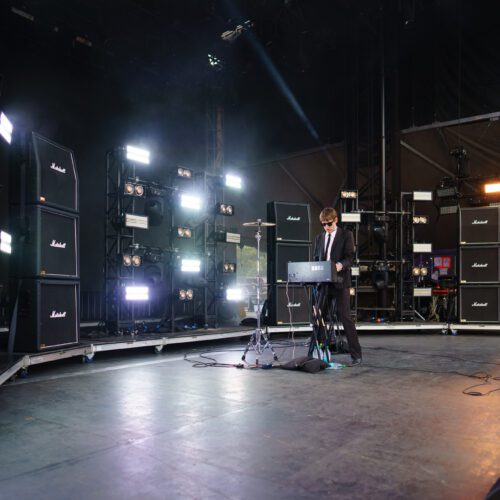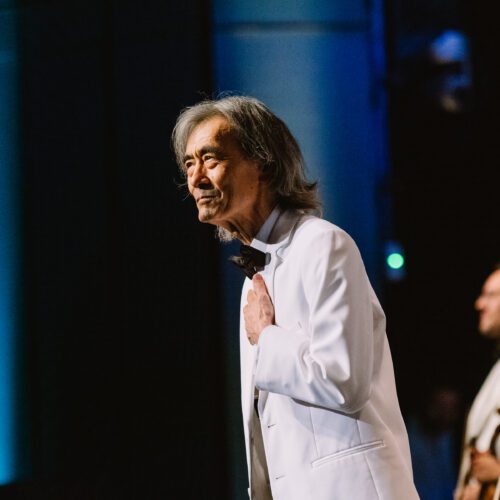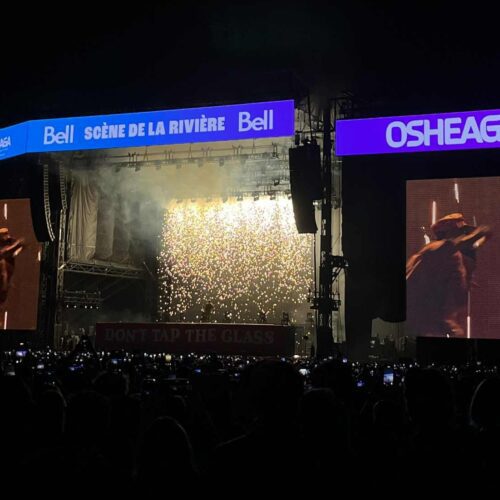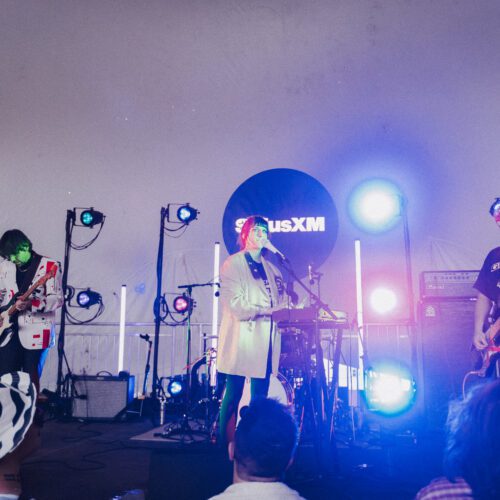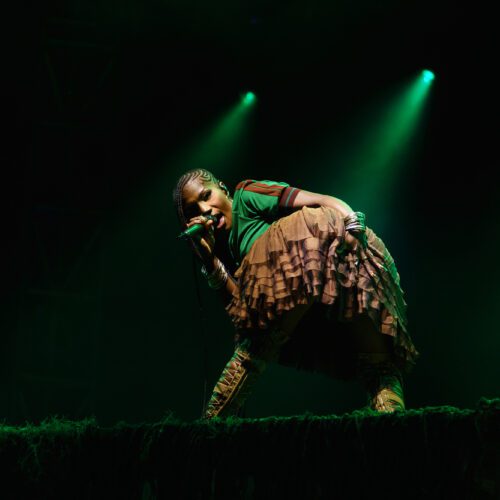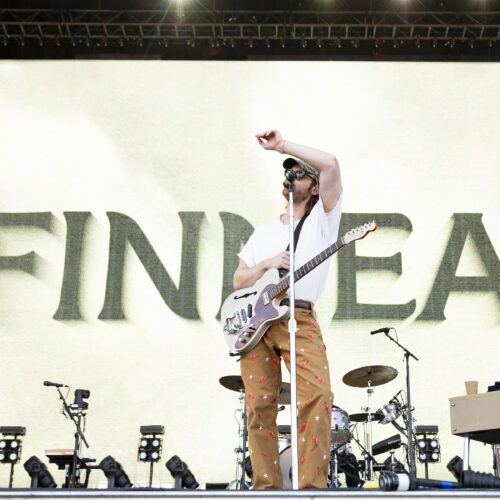Les Violons du Roy’s first concert of 2025 finally took place not in Quebec City, but in Montreal’s Salle Bourgie. The weather having forced the postponement of the February 13 performance at the Palais Montcalm to a later date, it was Montreal audiences who got to hear violinist Kerson Leong and the world premiere of Kelly-Marie Murphy’s Found in Lostness, to a full house.
The evening’s repertoire was structured around works by Johann Sebastian Bach and Felix Mendelssohn. Bringing together the figures of Bach and Mendelssohn in a program is not a new or innovative idea. As first guest conductor Nicolas Ellis, in charge for the evening, rightly reminded us in his introduction. Indeed, Mendelssohn made a major contribution to the rediscovery of the Leipzig cantor’s music, which had been somewhat forgotten in the 19th century, when he presented The St. Matthew Passion in Berlin in 1829. Mendelssohn, himself an organist, was greatly influenced by Bach, as were many other composers who saw him as a spiritual master.
The first work on the program was Mendelssohn’s Symphony for Strings No. 10 in B minor. A youthful composition – he was fourteen when he wrote it – the influences are clearly classical in the treatment of the strings, reminiscent of Haydn, but the conduct of the voices, particularly in the first movement, marked Adagio, is eminently Bachian. In fact, the choice of the key of B minor, the same as that of his famous Mass, is a nod to Bach. For the rest, the form remains classical, but is peppered with the lyricism and passionate dynamic changes characteristic of Romanticism. It is clear that this is a young Félix exploring musical language, who has not yet found his style.
This was followed by a sensitive, meditative interpretation of the organ chorale O Mensch, bewein’ dein Sünde groß [O man, weep for your great sin]. Nicolas Ellis guided the musicians into an intimate, pleading world. The arrangement for strings by German composer Max Reger (1873-1916) lends a hushed, more interior character where, right up to the last note, we are left in a state of suspension. It’s another nod to Bach’s legacy to include Reger, who is said to have said: “Bach is the beginning and the end of music”.
What an excellent idea to seamlessly link the arrangement for soloists and string orchestra of the aria “Erbarme Dich [Have mercy, my God]” from St. Matthew’s Passion, featuring the evening’s guest soloist Kerson Leong, with Canadian composer Kelly-Marie Murphy’s Found in Lostness. With a sound of purity, Leong is accompanied by violist Jean-Louis Blouin in this vocal duet that perpetuates the dynamics of the previous chorale. Seconds that rub against each other to create dissonance magnify the imitation of the Apostle Peter’s guilt-ridden weeping after denying Jesus.
The transition into Kelly-Marie Murphy’s world is a natural one, as the aesthetic of the piece explores the theme of loss. The piece opens with chilling high notes, following a double bass solo by Raphaël McNabney that exploits the unnatural treble of his instrument. The piece then takes off in an energetic burst, featuring vivid melodic lines, extended violin playing techniques imitating shrill cries, tense chords and constant dynamic changes. After this wild ride, calm returns with a harmonic string carpet over which Kerson Leong’s violin brushes a dissonant line that the rest of the orchestra lightly joins. This finale reminded us of Charles Ives’ The Unanswered Question. Coherent, accessible and engaging, it deserves to be heard and, above all, listened to!
After opening with the music of the young Mendelssohn, the concert concluded with his last work, the String Quartet in F minor, composed after the death of his sister. The language of maturity asserts an unabashed romanticism, where the development of ideas is more developed, personal and marked by emotionally charged orchestral lines and treatments.
